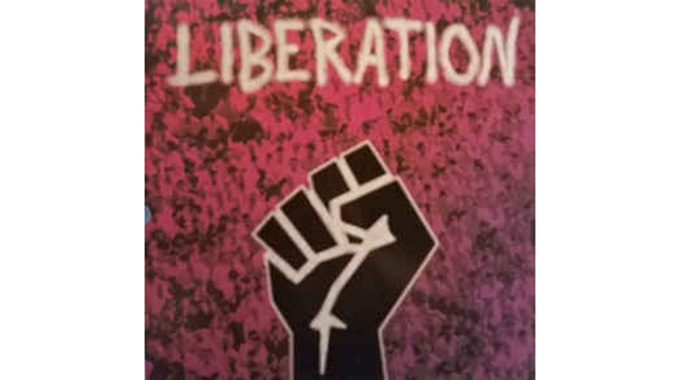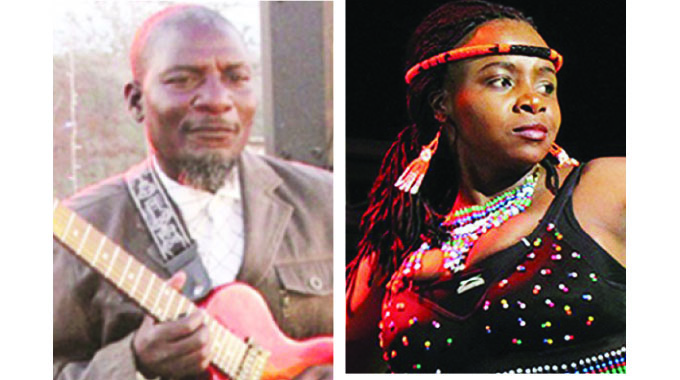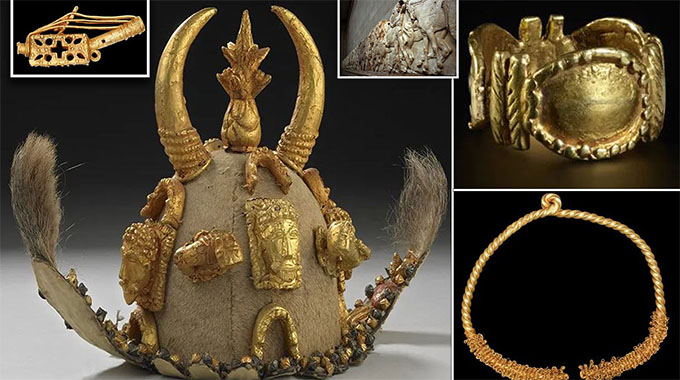Songs that liberated the country

Bongani Ndlovu-Bulawayo Bureau
The song “Kubuhlungu Emoyeni” (There is pain in my heart) by LMG choir evokes emotions of the liberation struggle and one of the singers, Cde Happiness Sibanda, breaks into tears each time she explains the meaning of the song.
Cde Sibanda, a member of Light Machine Gun choir that was set up by the late Vice President Dr Joshua Nkomo to motivate freedom fighters during the protracted war of liberation, was one of the many who were overjoyed when Prince Charles lowered the Union Jack.
Cde Sibanda, whose struggle name was Kunzima Ekhaya, joined the war in January 1977 when she was 14-years-old and was part of the LMG choir.
The song “Kubuhlungu Emoyeni” by LMG Choir, is synonymous with the Heroes’ celebrations and is usually played when a national hero is being buried at the National Heroes Acre or when the nation remembers its gallant sons and daughters that paid the supreme sacrifice to liberate the country.
Its importance reaches a crescendo every August when events like the Zimbabwe Defence Forces Day and Heroes Day are commemorated.
Cde Sibanda (58) reminisced on how liberation songs and choirs like LMG motivated and boosted the morale of combatants.
She said the song did not only motivate combatants to continue with the struggle despite the hardships, but also speaks to the plight of some ex-combatants after the war.
“Emoyeni is a very emotional song for me and many guerrillas. Many didn’t get a formal education after the war. Some of us like me went back to school when I was 21 and I was doing my Form One at Fatima High School. So, the song talks about the plight of fellow combatants who didn’t get a good life after the war. They went to war when they were young and after the war they could not go back to school because they were too old. Most after demobilisation, went back to their rural homes,” said Cde Sibanda.
She said many were orphans because their parents died during the war while others did not return home as they were killed during the struggle.
“The song says we went to war and fought but when we came back some of us did not enjoy the fruits of our sacrifice. Remember we were promised farms when we came back from the war and some of us are yet to benefit from the land reform?”
Cde Sibanda said many of them had long lost hope of ever being recognised for their sacrifice given that it is more than 41 years after independence.
“We however, want to acknowledge that since the coming in of the New Dispensation, we are noticing positive moves to recognise us as ex-combatants,” said Cde Sibanda.
She said they were getting very little that could hardly meet basics and have been informed that plans were underway to review their allowances as well as avail other resources to improve their livelihoods.
“We were in pain. Even LMG was quiet for years and we thought our leaders had forgotten us. It is our hope that our plight will be addressed in the shortest possible time now that we are speaking out about the challenges we are facing,” said Cde Sibanda.
She said as the choir they played a very critical role to motivate and boost morale of the fighting combatants hence should be treated just like those who were at the front.
Some of the songs that raised the spirits of weary freedom fighters included, “Sihlezi Egangeni”, “Laphuma Laba Bahle”, “Sizogijima” and “Guerrilla Ilanga Litshonile”.
“These were fighters who had left behind their parents, who did not know when the struggle they had joined was going to end and did not know when they would have their next meal but we kept their morale high through our songs” said Cde Sibanda.
She said on 19 October 1978, a year after she joined the struggle, the Ian Smith regime deployed its forces to Zambia to carry out raids on two ZIPRA camps, the Freedom Camp (FC) and Mkushi, which was facility for women guerrillas. The two ZIPRA camps were bombed on the same day, under Operation Gatling, the savage attack which Cde Sibanda said she will never forget.
“When FC and Mukushi camps were bombed we composed a song to encourage and give morale to the troops called Liphuma Laba bahle, imvelo yonke yaphenduka yababomvu. This means, it was a normal day and, in a few minutes, things changed and our camp turned red with the blood of our fellow colleagues. We composed new songs for those who survived and were injured, encouraging them not to lose hope despite the attack by the settler regime,” said Cde Sibanda.
She said the trauma of that bombing still affects her and other combatants
“Most of the LMG songs are about the bombing. That is when we composed songs about the pain that we went through. After Zimbabwe gained independence, we sang Emoyeni, kwakubuhlungu, Salwa salala egangeni lenyamazana, singethuki lutho. We were narrating what happened during the war.
“The trauma is still affecting me. I was 15 years old and what I remember on the fateful day is that we heard a whistle and we were asked to take cover. Many were still to find a hiding place when the bombing started hence the many deaths.”
Cde Sibanda said part of her trauma was seeing her colleagues burnt by Napalm bombs used by the colonial regime.
“It’s like hot plastic, it burns your skin. They used it to flush out people hiding in trees and in trenches and it was traumatic because someone you would have spoken to a minute ago, is now dead and his or her intestines are out because of the bombing,” said Cde Sibanda.
According to online sites, Napalm is effective against dug-in enemy personnel. The burning incendiary composition flows into foxholes, trenches and bunkers, and drainage and irrigation ditches and other improvised troop shelters. Even people in undamaged shelters can be killed by hyperthermia, radiant heat, dehydration, asphyxiation, smoke exposure, or carbon monoxide poisoning. One firebomb released from a low-flying plane can damage an area of 2 100 M2
Cde Sibanda said it was not all gloom in the trenches as they would joke about their circumstances to up their spirits.
“You find that some of the songs we were singing were to encourage and others to give morale. Like one called Guerrilla ilanga litshonile uzolalaphi. It’s a song that we were mocking each other, saying we don’t have shelter and don’t know where we would sleep and the reply was: I’ll sleep in the trees like a bird. This is because we would dig some pits while in the bush and that is where we would sleep.”
She said even after independence they used songs to reassure the masses that they had taken over the country and defeated the Smith regime.
“When the Union Jack was lowered on Independence Day, I was there. We sang before Bob Marley and the songs were ‘Yithi Laba’ and ‘Sangena eHarare sathola amakhanda amanengi’. These were songs of victory and affirmation. This is because many of us had stayed behind in the bush and Ian Smith had lied to our parents that he had killed everyone in Zambia. So, we were telling our parents and Ian Smith that we were there and alive, victorious in a new Zimbabwe,” said Cde Sibanda.







Comments